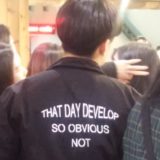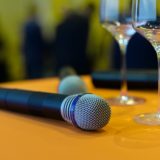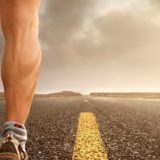The First Water Stop in the Couch to Korean Challenge
 An essential part of any running race, from a 5k through a marathon, is the sequence of regularly-spaced water stops along the course. These water stops, normally tables with cups of water, allow the runners an opportunity to take a few seconds to rehydrate and refuel before charging forward into the next stage of the race. This week seems like a good opportunity to take the first water stop in the Couch to Korean challenge, in order to summarize the progress so far and to take a look at the course map for the next stage of the challenge.
An essential part of any running race, from a 5k through a marathon, is the sequence of regularly-spaced water stops along the course. These water stops, normally tables with cups of water, allow the runners an opportunity to take a few seconds to rehydrate and refuel before charging forward into the next stage of the race. This week seems like a good opportunity to take the first water stop in the Couch to Korean challenge, in order to summarize the progress so far and to take a look at the course map for the next stage of the challenge.
I kicked off the Couch to Korean Challenge about 3 months ago with one simple goal: to start from scratch, with absolutely no knowledge of the Korean language, and then learn as much Korean as possible within one calendar year. In the first 3 months I have focused primarily on locating and evaluating Korean language resources and mastering the language basics. This has helped me to wrap my head around the scope of the task of learning Korean, so that I can lay out a successful plan for the remainder of the challenge.
 In order to track my Couch to Korean Challenge “training runs,” I have been using my trusty Timex stopwatch to log Korean study sessions in 15 minute intervals. While I have tried to squeeze in study sessions of 30-60 minutes every day, I have only succeeded on 52 days, logging a total of 50.25 hours of Korean study over the 3 calendar months. Below I give the breakdown by category where I have spent the study time so far, with the current status of each category.
In order to track my Couch to Korean Challenge “training runs,” I have been using my trusty Timex stopwatch to log Korean study sessions in 15 minute intervals. While I have tried to squeeze in study sessions of 30-60 minutes every day, I have only succeeded on 52 days, logging a total of 50.25 hours of Korean study over the 3 calendar months. Below I give the breakdown by category where I have spent the study time so far, with the current status of each category.
- Language basics and resources: The history of the Korean language and its language family, including the culture and history of Korea. The writing system and the mapping from written characters to spoken sounds. Phoneme inventory and phonology. Available resources for learning Korean.
- Time to date: 17.25 hours
- Status: I have found and evaluated a set of Korean language resources that I will be using throughout the challenge to learn Korean. Using these resources I have learned the writing system and the sound system and practiced reading and listening to simple words and basic sentences.
- Posts:
- Grammar: Studying syntax, morphology, and other grammar details
- Time to date: 17.75 hours
- Status: I have learned the basics of Korean sentence structure, including the particle system, verb conjugation, and honorifics. I can parse and generate simple sentences in the present, past, and future tenses using a small set of essential verbs.
- Posts:
- Vocabulary: Studying word lists and flashcards to learn new words
- Time to date: 6.75 hours
- Status: My current vocabulary is about 100 words, including numbers, country/language names, and essential particles and verbs
- Posts:
- Listening comprehension: Listening to instructional recordings, news, and other Korean audio sources to build aural comprehension
- Time to date: 8.5 hours
- Status: In the course of learning the writing system and grammar basics, I listened to the integrated audio recordings provided with many of the Korean course books and websites. This has given me good initial practice listening to Korean words and sentences.
- Reading comprehension: Reading Korean texts to solidify grammar and vocabulary
- Time to date: 0 hours
- Status: While I can read basic textbook sentences given a very limited vocabulary, I have not attempted to read any real Korean texts.
- Conversation: talking with native Korean speakers to practice speaking and listening
- Time to date: 0 hours
- Status: nonexistent
Now that I am refreshed and refueled from my first water stop, my plan for the next leg of the Couch to Korean Challenge is to focus on grammar and vocabulary, in order to expand my ability to read and understand more complex sentences. I have found the two websites Korean From Zero and How to Study Korean to be very helpful in learning the grammar and the essential vocabulary. They both have nicely integrated audio for all words and sentences. For offline learning I have been using the Elementary Korean textbook; while it doesn’t have the tightly integrated audio, it does provide some useful mp3 files that I have been listening to while out walking and running.
My hope is that by the next water stop I will be starting to read real Korean texts, probably starting with some children’s books. Which means I will need to find a Korean dictionary for looking up new words encountered while reading; I will plan a round of evaluating the dictionary options and will add my findings to the Korean Resources page. I will also work on writing up reviews of the following resources that I have used extensively in this first phase of the Couch to Korean Challenge:
- Korean From Zero
- How to Study Korean
- Korean: An Essential Grammar (Routledge Essential Grammars)
- Elementary Korean
- Wikipedia page for the Korean language
- Omniglot page for Korean
- Memrise app
Share this Lexplorers post:










